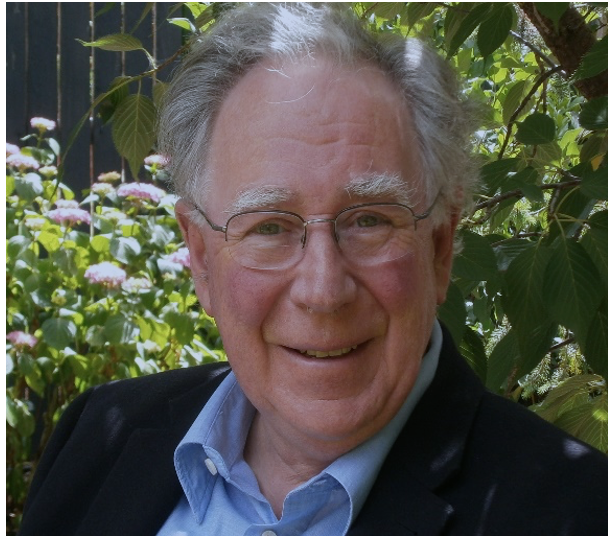Will the new pope be a Francis clone?
May 7, 2025
The 133 cardinals under the age of 80 have been in formal regular sessions in the Vatican most days listening to each other’s speeches and, more importantly, getting together in informal meetings in ecclesiastical colleges, restaurants, embassies, apartments, and pizza parlours in the Borgo near the Vatican.
The one candidate they’ll have already excluded is the self-nominated Donald Trump!
They’re literally from all over the world representing 71 countries with 52 Europeans (including 17 Italians), 22 Asians, 23 from South and Central America, 18 Africans, 14 North Americans and four from Oceania, including Tonga, PNG, New Zealand and Melbourne. Pope Francis choose 108 of them.
To circumvent disputed elections, the Third Lateran Council (1179) decreed that a candidate must gain a majority of two-thirds of the votes to be elected pope. The was meant to force them to compromise and reach an agreed consensus. That means a cardinal needs 89 votes to become pope.
The media is touting “front-runners”, but before listing cardinals as “papabili” — possible popes — we need to review the situation facing Catholicism. Perhaps the fundamental divide that the church faces is between the developing and developed world. As Sean Michael Winters says, if you’re are a cardinal from a developing country “making sure your flock does not go hungry matters more than whom they go to bed with” (National Catholic Reporter, 4/9/2019).
The developing world is strongly represented in this conclave. For these cardinals, internal ecclesiastical matters won’t be as important for the new pope as pastoral care and the ability to run a diocese. While progressive Western Catholics care about issues like gender identity and contemporary sexuality, peripheral cardinals are focused on social justice, poverty and hunger.
The international role of the papacy working for peace, human rights, the dispossessed and refugees will also be front of the cardinals’ minds. They would not have missed Pope Francis’ impact on world affairs and the Vatican’s role in facilitating international dialogue symbolised by the meeting of Presidents Trump and Zelenskyy in Saint Peter’s before Pope Francis’ funeral.
The continuation of Francis’ open theological and pastoral agenda will also play a role. Most will favour continuing Francis’ emphases, but there is opposition and there will be a rejection of the previous papacy by some.
Two other lurking issues are sexual abuse with threats of naming cardinals whose record on dealing with abuse is bad. There’s also concern about the Vatican’s finances, which in 2023 had an operating deficit of €83 million.
So, what will happen? I think many of the peripherals will opt for electing an Italian. The pope is, after all, the bishop of Rome and we’ve now had a run of three non-Italian popes. The two Italian cardinals who stand out are Pietro Parolin, aged 70, Pope Francis close collaborator as Secretary of State, and Matteo Zuppi (69), archbishop of Bologna. Zuppi, particularly, shares Francis’ vision and will continue his theological and pastoral emphases.
Born in Rome, Zuppi has had 34 years’ pastoral experience in the city as a priest and Auxiliary bishop. A trained historian, he is a member of the Sant’Egidio Community, a lay group with 30,000 members engaged in inter-religious dialogue, peace activities and supporting the poor. Zuppi played a key role in helping end the civil war in Mozambique in 1992, and Francis sent him on a peace mission to Ukraine where he met Zelenskyy and former US president Joe Biden. Sympathetic to LGBTIQ+ issues, he is very much in the “who am I to judge” mould.
Parolin has been a very able papal diplomat his whole career. He has hardly any pastoral experience and has never run a diocese. Also, there have been criticisms over his negotiations with China’s Xi Jinping, including from former Hong Kong bishop, 93-year-old Cardinal Joseph Zen, and former British governor of Hong Kong, Chris Patten, a Catholic.
Another often mentioned is Luis Antonio Tagle (67), a former archbishop of Manila, widely known by his nickname “Chito”. More recently, he has had various jobs in the Vatican, including the Dicastery (department) for Evangelisation which put him touch with the church and bishops in the developing world. However, there has been criticism of his administrative abilities which has led to his electable status being questioned.
The clear candidate for those who want to prevent a Francis clone being elected is Peter Erdö, archbishop of Esztergom-Budapest (72). A highly intelligent canon lawyer, he has twice been elected president of the European Bishops Conference, but has never been elected by his fellow Hungarian bishops as president of their conference. He gained some votes in the 2013 conclave — his key promoter was Cardinal George Pell — but he was never really a challenge to Jorge Bergoglio, Pope Francis.
Erdö represents those who talk about the need for “unity” in contrast to Francis’ “disruption”. Czech-Canadian Vatican-based Cardinal Michael Czerny, who worked closely with Pope Francis, and has led the Vatican office for human development, says unity — while essential — cannot be a program or a policy. “It’s interesting,” he says, “that the words (unity and uniformity) are so close, but the difference is huge. I think one is the kiss of death, and the other is life and abundant life.”
While Catholics believe papal elections are somehow guided by God’s Spirit, the actual election process is played out through political negotiation and horse-trading, all determined by the various theological, ecclesiastical and geo-political priorities of particular cardinals. Catholics hold that grace builds on nature and that the subtle activity of the Spirit works through the complexity of human affairs.
One final word of warning: my papal election predictions have been completely wrong for the last two conclaves. Don’t put too much money on my tips!


